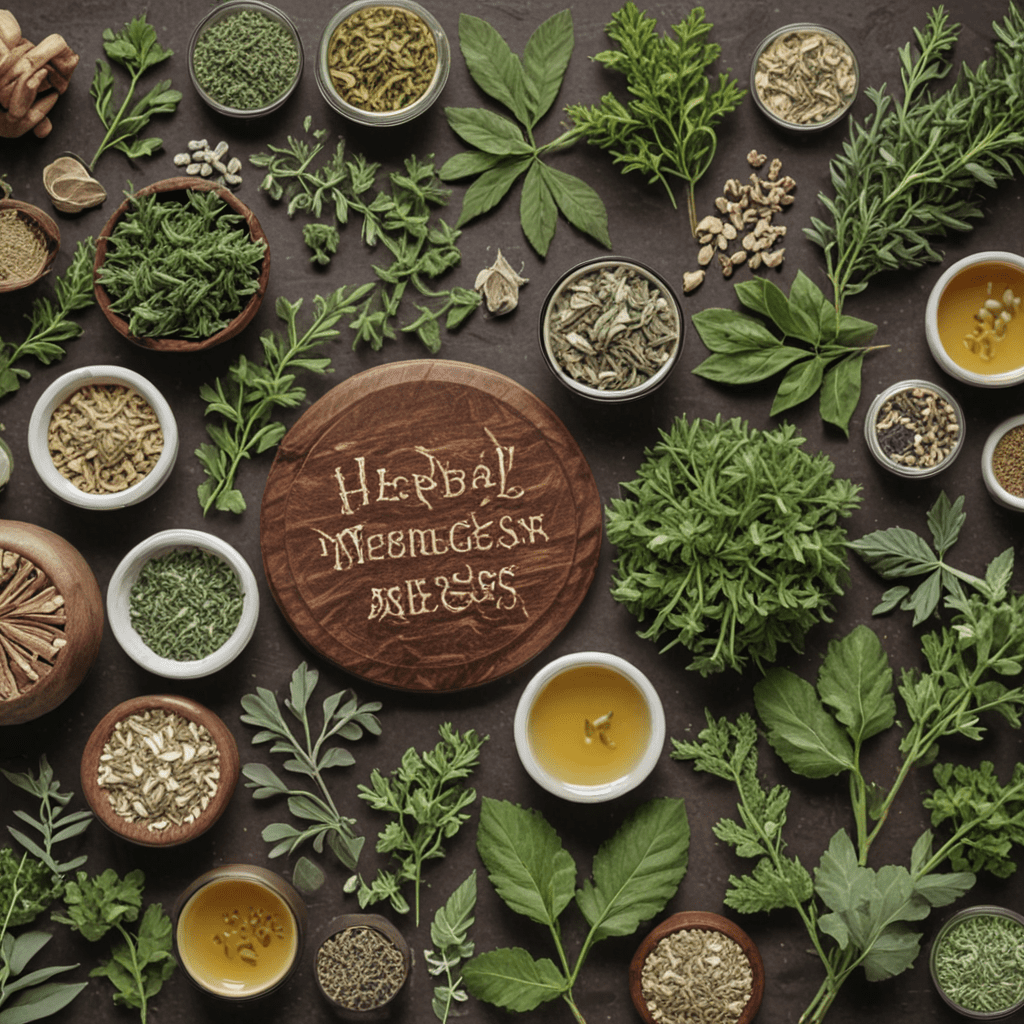
Herbal Remedies for Stress Management and Relaxation
Stress and anxiety have become prevalent concerns in today's fast-paced world. Conventional treatments often rely on medications that can have potential side effects. Herbal remedies offer a natural and holistic approach to managing stress, promoting relaxation, and improving overall well-being.
Causes of Stress and Anxiety
Stress and anxiety arise from various sources, including work, relationships, financial pressures, and life transitions. External factors such as environmental toxins, dietary deficiencies, and lack of sleep can also contribute to stress and anxiety. Understanding the underlying causes is essential for developing effective coping strategies.
Benefits of Herbal Remedies
Herbal remedies have been used for centuries to address stress and anxiety. They contain naturally occurring compounds that interact with the body's systems to promote relaxation, reduce stress hormones, and improve mood. Herbs offer the following benefits:
- Natural and gentle: They are derived from plants and have milder side effects compared to synthetic medications.
- Holistic approach: They address the root causes of stress and anxiety by promoting overall well-being and balance.
- Long-term effects: Herbs work gradually over time, providing sustained relief without the need for constant dosage adjustments.
Popular Herbal Remedies for Stress Relief
Numerous herbs have calming and anxiolytic properties. Here are five popular options for stress relief:
- A. Chamomile: Known for its soothing effects, chamomile contains compounds that reduce inflammation, promote sleep, and ease stress.
- B. Lavender: Lavender's aromatic properties promote relaxation, calm nerves, and improve mood. It is often used in aromatherapy and herbal teas.
V. Other Calming Herbs
Beyond the popular herbs mentioned above, several other herbs possess calming properties:
- **Lemon Balm:** Known for its lemon scent, lemon balm has calming effects on the nervous system, helping reduce stress and improve sleep quality.
- **Peppermint:** Peppermint's refreshing aroma has both calming and invigorating effects. It can relieve tension headaches and promote mental clarity.
- **St. John's Wort:** This herb has been traditionally used to treat mild to moderate depression and anxiety. It is believed to increase serotonin levels in the brain.
- **Holy Basil (Tulsi):** Holy basil is an adaptogenic herb that helps the body adapt to stress. It has calming effects on the nervous system and supports overall well-being.
VI. How to Use Herbal Remedies
Herbal remedies can be used in various forms:
- **Teas:** Steeping herbs in hot water releases their beneficial compounds. Teas are a convenient and gentle way to consume herbs for stress relief.
- **Tinctures:** Herbal tinctures are concentrated extracts made by soaking herbs in alcohol or vinegar. They are potent and offer quick absorption.
- **Capsules and Supplements:** Herbal supplements provide standardized doses of herbs in capsule form. They are convenient but may not be as potent as teas or tinctures.
VII. Dosage and Safety Considerations
The dosage and safety of herbal remedies vary depending on the herb and the individual. It is always advisable to consult a healthcare professional before using any herbal remedies. Generally, lower doses are recommended for stress relief and can be gradually increased if needed.
VIII. Contraindications and Interactions
Some herbal remedies may interact with certain medications or have contraindications for specific health conditions. It is essential to inform your healthcare provider about any herbal remedies you are using or plan to use.
IX. Considerations for Herbal Supplements
When choosing herbal supplements, consider the following factors:
- **Quality and Reputability:** Choose reputable brands that follow quality control standards.
- **Standardized Ingredients:** Opt for supplements that provide standardized amounts of active ingredients.
- **Independent Certifications:** Look for third-party certifications such as USP Verified or NSF Certified for Herbal Supplements.
X. Conclusion
Herbal remedies offer a natural and effective approach to managing stress and promoting relaxation. By incorporating these herbs into your routine, you can reduce stress, improve sleep, and enhance your overall well-being. However, it is crucial to use herbal remedies safely and consult a healthcare professional for personalized advice and dosage recommendations.
FAQs
Can herbal remedies cause side effects?
Like any natural supplement, herbal remedies can have potential side effects, especially if used in high doses or for extended periods. It is important to follow dosage instructions and consult a healthcare professional if you experience any adverse effects.
How long does it take for herbal remedies to work?
The onset of effects varies depending on the herb and the individual. Some herbs, like chamomile and valerian root, may provide immediate calming effects, while others may take several weeks of regular use to show noticeable benefits.
Are herbal remedies safe to use long-term?
Some herbal remedies are safe for long-term use, while others may have potential risks. It is important to consult a healthcare professional to determine the appropriate duration of use and to monitor any potential side effects.


